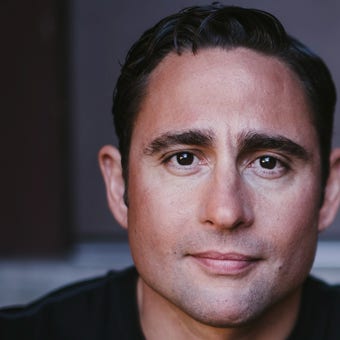Second Lady Karen Pence on suicide prevention as Americans struggle with coronavirus pandemic
Second lady of the United States, Karen Pence, joins Harris Faulkner on ‘Outnumbered Overtime.’
September is National Suicide Prevention Month. It brings back memories of a night several years ago when I sat on the couch, pistol in hand. The stench of CLP, a lubricant the military uses to keep weapons clean, filled my nostrils. I inserted the 15-round magazine into the pistol and pulled the slide to the rear, putting a round in the chamber.
I flipped the switch to fire. I had been drinking a lot of beer that night, and thoughts raced through my head. Sitting in the dark living room, I thought: “Just do it, why wait? Why live in pain any longer?”
Now I wonder why I had such a thought, and why so many veterans — about 17 a day— commit suicide in this country.
KAREN PENCE ON NATIONAL SUICIDE PREVENTION WEEK: 'WE WANT TO REDUCE THE STIGMA'
I had just come home from my first combat deployment in Iraq. In addition to suicidal thoughts, I had nightmares, flashbacks, and insomnia. I also experienced nausea, dizziness and headaches after being exposed to repetitive concussive blasts. I had begun to question my purpose in life.
Fortunately, I realized that God did have a purpose for me and I got help. But several recent events triggered emotions that brought me back to another dark place.
More from Opinion
I retired from the military this summer into a civilian world torn by a pandemic and racial unrest. To witness people kneeling during the national anthem and burning the American flag that I fought so hard to protect and preserve is painful. It’s confusing and difficult to process.
On Aug. 31, Army veteran Ronnie McNutt killed himself on Facebook Live. Then Sept. 9 marked the one-year anniversary of the suicide of Calvary Chapel pastor Jarrid Wilson, who was the founder of the mental health nonprofit Anthem of Hope.
On a deeply personal level, I did a CrossFit Hero Workout called DT, named after an Air Force special warfare combat controller killed in Iraq. This workout hit close to home because I also was an Air Force special warfare operator and knew DT.
Although I still struggle from time to time, especially when things like this happen, I have found that seeing a mental health expert has helped me to talk through my combat experiences and find some closure.
But my problems aren’t merely psychological, and that’s true for many veterans. They suffer from traumatic brain injury and “moral injury” after witnessing or doing things that violate their personal beliefs.
Since I have had multiple concussions, I also see a specialist who is an expert in traumatic brain injury. Her help has greatly improved my brain health and function.
Finally, I have sought spiritual mentorship and strengthened my relationship with God, who has kept me alive through my darkest times. The truth is, when someone is suicidal, they need several kinds of treatment.
Suicide is not just a military problem; it is an American problem. It’s one of the leading causes of death in the U.S., and the suicide rate is increasing.
CLICK HERE TO SIGN UP FOR OUR OPINION NEWSLETTER
I thought I was too tough to reach out for help. Special operators are supposed to be strong and unbreakable. Well, we are strong, but we are also human.
If you are struggling like I was, reach out and get help. Always remember that you are loved and that God has a plan for you.
That night when I sat in the dark room with my pistol, the enemy wanted me to pull the trigger and end my life. God wanted me to live in order to save others struggling with similar issues.
I now know my purpose is to use my experiences to spread knowledge, understanding and hope to heal others.
CLICK HERE TO GET THE FOX NEWS APP
Don’t fall for the enemy’s lies. If you need help, reach out. I assure you, people are standing by.
If you or someone you know needs help, call the National Suicide Prevention Lifeline at 800-273-TALK (8255).



